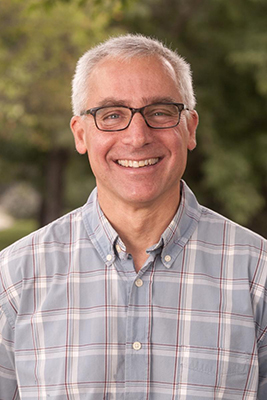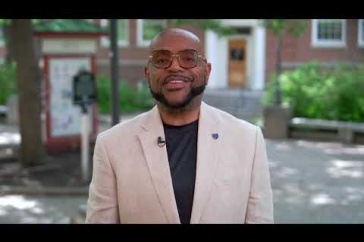
Campus will be covered in red this coming week in honor of World AIDS Day on Tuesday, December 1. Three decades have passed since the height of the HIV epidemic in the early 1980s. On the occasion of World AIDS Day, UNH Today checked in with Dr. Peter Degnan of UNH Health Services to find out more about the state of the virus today.
UNH Today: Every 9.5 minutes, someone in the United States is infected with HIV. How does that compare to when the virus first came into the forefront in the 1980s?
Dr. Degnan: In the United States, the incidence of new HIV infections peaked around 1983-1984, with the current incidence of new HIV infection generally stable since 1992. However, the total number of individuals living with HIV infection continues to increase annually. In New Hampshire, 33 new cases of HIV infection were diagnosed in 2013, the majority within the southern part of the state, which includes Strafford County. More than 1,100 people in the state currently live with HIV infection.
UNH Today: An infection almost every 10 minutes seems steep for a highly industrialized nation. Why are so many still becoming infected?
Dr. Degnan: There are many factors that have been identified as increasing HIV risk. Certainly, inadequate access to health insurance and health care may reduce opportunities for prevention education and risk reduction treatments. Unstable housing has also been identified as a concern, with higher risks of IV drug use and unsafe sexual practices in those without safe or reliable shelter.
There is considerable concern that the rise in heroin addiction in our communities will result in the spread of HIV infection from the sharing of syringes/needles, and unprotected sexual activity with high-risk individuals while impaired. There is also a trend of increasing unprotected sex for men who have sex with other men. Lastly, with the death rate from HIV/AIDS declining, there is an incorrect perception that the overall risk of acquiring HIV infection with unprotected sexual activity has lessened; that’s just not true.
UNH Today: Which populations today are most prone to becoming infected with HIV?

Dr. Degnan: Nationwide, African-Americans have been identified as having the greatest risk for new HIV infection, with 51 percent of those occurring in African-American men who have sex with men, and 38 percent of those from heterosexual contact.
Men who have sex with men account for the second highest risk group for new HIV infection, followed by those who are of Hispanic/Latino origin.
Of particular concern for university students is that the highest number of new HIV diagnoses occurs in the age group 13-24 (57 percent of all new diagnoses). Almost 20 percent of new HIV illness in New Hampshire is attributed to heterosexual contact.
UNH Today: Recently actor Charlie Sheen announced that he is HIV positive. How does this announcement from a well-known person change the current conversation about HIV and AIDS, if at all?
Dr. Degnan: Mr. Sheen’s announcement should serve to increase public consciousness of the prevalence of HIV in our communities, the importance of reducing one’s risk for acquiring HIV (including the use of safe sexual practices) and the value of HIV screening for one’s own health and the health of intimate partners.
UNH Today: Health Services is offering free HIV testing to students on December 1. What would you say to a student who thinks he or she should be tested but is hesitant to come in?
Dr. Degnan: Sixty percent of people with HIV ages 13-24 in the United States do not know they are infected and can unknowingly pass on HIV to a partner. For both males and females, having sex under the influence of drugs or alcohol can increase risky behaviors that could lead to becoming infected with HIV. Among U.S. colleges and universities, the rate of unprotected casual sex doubles from freshman to senior year, increasing the risk for sexually transmitted infections including HIV. Early identification of HIV infection can often be medically treated with reduced morbidity and mortality when compared to those diagnosed later in their illness.
UNH Health Services is marking World AIDS Day with several events on Tuesday, December 1.
Red Ribbon campaign
All week you’ll see red around campus in honor of World AIDS Day. Pick up your own red ribbon at Health Services or in the MUB.
AIDS Memorial Quilt on Display
11 a.m. – 5 p.m. and 6:30 p.m. - 8:30 p.m.
Granite State Room, MUB
Free and open to the public
Know Your Status: Free HIV Testing Clinic for UNH Students
11 a.m. – 2 p.m. at Health Services Center
(Testing is available at UNH Health Services year-round by appointment.)
Performance: Elegies for Angels Punks & Raging Queens
Time TBD
Granite State Room, MUB
Free and open to the public
Free Condoms
Free male and female condoms, dental dams and lubrication are available to UNH students on World AIDS Day and every day of the year. Visit Health Services, room 249. No questions asked.



















































